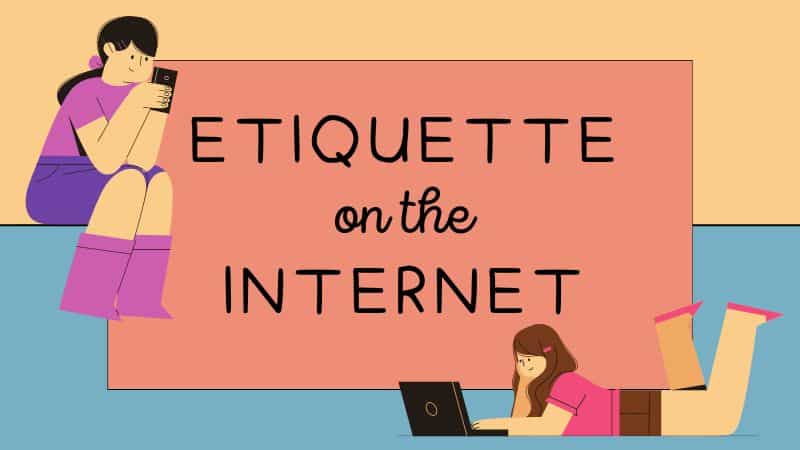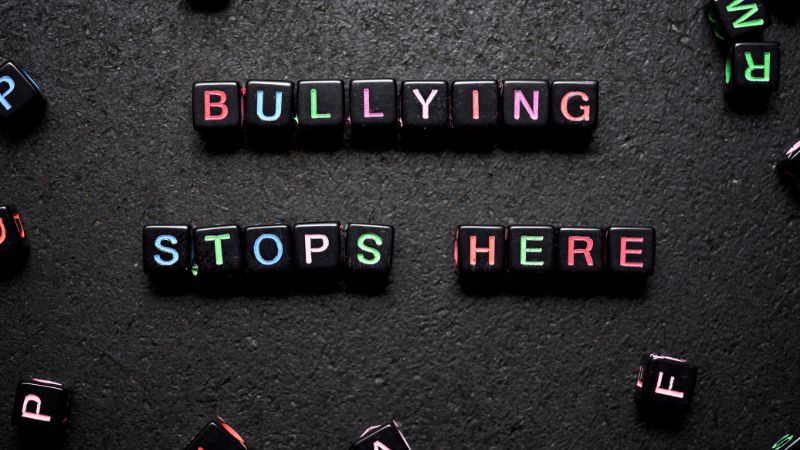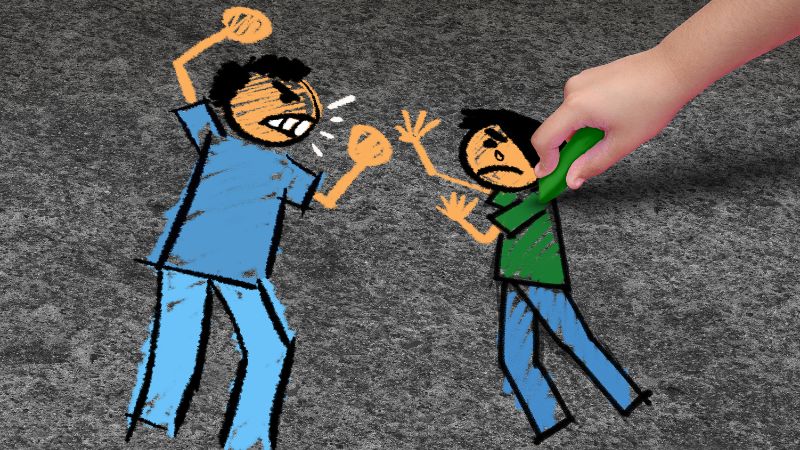Let’s talk about “netiquette.” This word might sound new to you, but it’s quite simple. It’s the “net” (Internet) plus “etiquette” (manners).
Netiquette is all about manners on the Internet.
In today’s world, most of us spend time online. We chat, share photos, comment on posts, and send emails. And just like in the real world, there are rules on how to behave online.
Following these rules makes the online world a friendlier place.
In this article, we’ll talk about the ten golden rules of netiquette. I’ll also cover the bad things that can happen when we don’t follow these rules. And I will answer common questions about netiquette.
Nearly 70% of Filipinos use the Internet. We Filipinos need to know more about netiquette!


Understanding Netiquette
So where did netiquette come from?
Well, it’s been around as long as the Internet. When people first started chatting and emailing each other online, they noticed they needed some rules.
Just like when we talk face-to-face, it’s essential to be respectful and kind.
So they devised some guidelines to ensure everyone behaves well online. This is how netiquette was born.
Over the years, as the Internet has grown and changed, so has netiquette.
Today, we have many more ways to communicate online. We use social media sites like Facebook, Instagram, and Twitter.
We send messages through apps like Messenger and Viber. And every one of these platforms has its own set of netiquette rules.
Remember, the goal of netiquette is simple: to make the online world a friendly and respectful place.
Allow me to provide a format definition. Then, cite some reasons why it is important. I have hinted at the meaning and importance, but it won’t hurt to expound.

What is netiquette?
Netiquette, a blend of the words “Internet” and “etiquette,” refers to the set of guidelines for appropriate behavior online. These rules govern how to communicate and interact in a respectful and considerate way when using the Internet, particularly in online discussions and communications.
These guidelines can cover various aspects of online behavior, such as:
- Writing clear, concise, and respectful messages
- Respecting others’ privacy
- Avoiding offensive language or content
- Giving credit to others’ work and not plagiarizing
- Keeping personal conversations and sensitive topics in private messages
- Not spamming others with unwanted messages or advertisements
- Practicing good security habits, like not sharing passwords
These rules aren’t enforced by any laws or regulations, but following them can help create a more respectful and enjoyable online environment for everyone.
It’s important to remember that behind every screen, there’s a real person with feelings, so treat others the way you’d like to be treated.
Why practicing netiquette is important?
Practicing netiquette is crucial for several reasons:
Promotes Respectful Communication.
Netiquette promotes politeness, respect, and consideration for others in online environments.
When we are respectful in our interactions, it encourages others to do the same, fostering a positive online culture.
Prevents Misunderstandings
Online communication lacks the non-verbal cues that help us understand tone and intent in face-to-face conversations.
Good netiquette, such as not using all caps (which can be perceived as yelling) or carefully using emojis to convey tone, can help prevent misunderstandings and conflicts.
Enhances Professional Image
In professional settings, your online communication represents you just as much as your in-person conduct does.
Practicing good netiquette shows that you are a responsible and considerate professional, which can positively impact your reputation and career.
Ensures Privacy and Security
Netiquette includes practices like not sharing private information publicly and being cautious about clicking on suspicious links.
Following these rules can help protect you and others from scams, identity theft, and other online threats.
Facilitates Effective Communication
Staying on the topic in discussions, keeping messages concise, and responding promptly are all netiquette practices that make online communication more effective and efficient.
Fosters a Sense of Community
When everyone follows the rules of netiquette, it creates an environment where people feel safe and comfortable expressing their thoughts and ideas.
This can help foster a sense of community in online spaces, making them more enjoyable and productive places to be.
In summary, practicing netiquette not only makes online interactions more pleasant, but also helps create safer, more productive, and more inclusive online communities.
Five Impacts of Poor Netiquette
Create a positive and safe online environment. Treat others respectfully, be mindful of our words, and respect privacy.
Let’s strive to uphold good netiquette and contribute to a more respectful and enjoyable online experience for everyone.
A. Misunderstandings and Communication Breakdowns
When we don’t practice good netiquette, it can lead to misunderstandings and breakdowns in communication. This means that our messages might not be understood as we intended, causing confusion and conflicts. For example, if we use offensive language or sarcasm, the other person might not realize we’re joking and get upset.
B. Damage to Personal and Professional Reputation
Poor netiquette can harm our personal and professional reputation. The things we say and do online can be seen by others, and they can form opinions about us based on our behavior. If we consistently engage in disrespectful or offensive behavior, it can make others view us in a negative light. This can impact our relationships with friends, family, and even potential employers. For instance, if we constantly post mean comments on social media, people might perceive us as rude or unkind.
C. Privacy Violations
When we disregard netiquette, we may end up violating someone’s privacy. Sharing someone’s personal information, private messages, or photos without their permission is a serious invasion of privacy. It’s essential to respect the boundaries of others and obtain consent before sharing any private content. For example, if someone shares a personal story with us in confidence, we should never share it with others without their consent.
D. Online Harassment and Cyberbullying
Poor netiquette contributes to online harassment and cyberbullying. When we engage in name-calling, spreading rumors, or using offensive language, it creates a hostile and hurtful environment for others. Cyberbullying can cause significant emotional distress and harm to the victims. For instance, sending mean messages or making hurtful comments about someone’s appearance or background can deeply impact their well-being.
E. Legal Repercussions
Engaging in poor netiquette can sometimes lead to legal consequences. Sharing false information, engaging in defamation, or invading someone’s privacy without consent may result in legal actions such as lawsuits. Laws differ in various jurisdictions, but it’s important to understand that our actions online can have real-world legal implications. Therefore, it’s crucial to be mindful of the content we share and ensure it doesn’t violate any laws or infringe upon the rights of others.
By understanding the impacts of poor netiquette, we can see the importance of practicing good online behavior.
Let’s talk about the 10 Golden Rules.

10 Golden Rules of Netiquette
In today’s digital world, where much of our communication happens online, it’s important to understand and follow the rules of netiquette. Just as we have rules of etiquette in face-to-face interactions, netiquette helps us navigate the online world in a respectful and considerate manner.
By following these 10 golden rules of netiquette, we can foster positive and harmonious online interactions.
These rules encompass a wide range of behaviors, from respecting others’ privacy to using clear and polite communication.
Understanding and applying these rules not only enhances our own online experiences but also contributes to creating a kinder and more inclusive digital community.
Remember the Human: Respect and Empathy
We may be typing on keyboards, but it’s important to remember that there’s a human on the other end.
Everyone wants to be treated with respect and kindness. I have encountered people who called me stupid and ignorant for citing the laws of the Philippines.
It was easy for them to do this because they don’t see the accountability. They had no idea who I am. But it was never okay especially when all I want is to clarify issues.
When we remember to treat others the way we want to be treated, we help create a more positive online environment.
For example, let’s say you see a post you disagree with. Instead of calling the person names, you can share your point of view politely.
Clarity is Key: Clear and Concise Communication
When we chat online, it’s easy to misunderstand each other because we can’t see facial expressions or hear the tone of voice.
That’s why it’s important to be clear and simple.
For example, instead of using complex words or phrases, we can choose simple ones.
It’s like when you chat with a friend on Messenger. You don’t say, “I am currently in the process of making a delectable meal.” Instead, you say, “I’m cooking dinner.”
I know we Filipinos won’t write that way. We don’t have a dictionary beside us when we are cooking. But it is very important to consider how the other person will understand us.
I will also remind you of the word checker on mobile phones. They replace Filipino words with something else.
Professionalism and Courtesy in Online Interactions
We should treat online spaces as we would any public place.
When we’re polite and professional, it encourages others to do the same.
Let’s say you’re in a Facebook group about gardening. If someone shares a tip you already know, you wouldn’t say, “That’s so obvious.” Instead, you’d say, “Thanks for sharing. That’s a great tip for beginners.”
I’ve seen people who seemed to know everything. And they want everyone to know it. But we don’t like those kinds of people offline. It is unlikely that we’ll accommodate them online.
One motivational speaker, for example, talked about his “motivational rice”. He promoted it as if those who cannot afford his expensive rice do not have “big dreams”. I find this kind of online behavior the least likable.
Respecting Privacy: Protecting Yours and Others’ Personal Information
Privacy is important, both ours and other’s.
We wouldn’t want someone sharing our private photos or messages without our permission, would we?
But there are many “content creators” who will steal someone’s video or download someone’s photos to use them for their content.
The worst that I have seen are those who will use the photos of people so they can make fun of them.
Putting CTTO won’t cut it too, especially when you are not even mentioning the owners’ names. I saw some of my ideas shared online with a CTTO at the end.
The worst is to see the games I designed for team building used by others without my permission.
So we should also respect other people’s privacy.
For example, if your friend sends you a private message, you shouldn’t share it with others without your friend’s permission.
Be a Good Cyber Citizen: Report Misbehavior
When we see someone being rude or breaking the rules online, it’s our responsibility to report it.
It’s like if we see someone littering in a park. We would tell the park guard, right?
(No, we don’t. I know.)
But we can do the reporting in the online world easily.
For example, if you see someone bullying another person on Facebook, you should report it to Facebook.
The Rule of Permission: Sharing and Using Content
I mentioned the use of CTTO: credit to the owner. The photos I have taken, my stands on issues, the slogans I made, and even the articles I wrote were published without my permission.
Many Filipinos think that putting CTTO at the end is enough. That’s not the correct way of attribution.
When we use someone else’s photo, video, or words, we need to ask their permission first.
This shows respect for their work and effort.
Let’s say you see a beautiful photo on someone else’s Instagram. You shouldn’t just repost it on your own account without asking first.
I once heard a speaker deliver a speech. And he took two paragraphs from my blog and delivered it as if it was his. It is possible for us to have the same idea for something like leadership. But I doubt we will construct two paragraphs exactly the same way.
Though I did not comment, I felt that this speaker violated my copyright. And this is not good for his reputation. So every time I listen to him, I wonder where he got his “wisdom”.
Respect Cultural and Linguistic Differences
The Internet connects people from all over the world. This means we’ll encounter people from different cultures who speak different languages.
We should respect these differences, just like how we’d respect people in our own country.
For example, if someone uses a word or phrase you don’t understand, you could kindly ask them to explain it.
In the Philippines, we have more than 70 languages. Often, the same word may have different meanings. So, it is not always safe to assume.
Also, at times people show a portion of a speech. Perhaps, the speech is 60 minutes long. But what is shown is for only a minute. I have seen many spliced videos, and people were quick to make comments.
Many comments were too nasty, I doubt the commenter will do the same offline.
Though we are not speaking in front of people, let’s remember that we don’t remain anonymous. Being accused of slandering someone may bring us some trouble.
Recently, a songwriter revealed his experiences with a singer. But his revelation sounds like he was maligning the person. And many people took his revelation as truth.
Many people’s lives are destroyed because some angry people share their version of stories online.
Maintain Online Positivity: Avoiding Hateful or Offensive Content
Negativity can spread fast online, but so can positivity. We can help make the online world a nicer place by staying positive.
Let’s say you see a negative comment on a YouTube video. Instead of adding to the negativity, you could post a positive comment.
Or if you don’t like the video you are watching, don’t watch it. Create the videos you like.
Use Proper Grammar and Spelling
When we use proper grammar and spelling, our messages become clearer. It’s like speaking clearly so others can understand us.
For example, if you’re writing a comment on a blog post, you’d want to make sure your comment is easy to read and understand.
Be Aware of Digital Footprints: Every Post Leaves a Trail
Everything we do online leaves a digital footprint. So we need to be careful about what we post or share. Even if you delete a post or comment, someone might have already seen it or taken a screenshot.
Think before you post.
Could your words be misunderstood or taken out of context?
For instance, you might be tempted to post a negative comment about your boss after a tough day at work. But what if your boss—or a future employer—saw that comment?
It’s always best to think twice before posting anything online.
These ten golden rules of netiquette aren’t just rules – they’re a guide to good behavior online.
By following these rules, we can help make the Internet a better place for everyone. It’s up to each of us to contribute to a positive online community.






